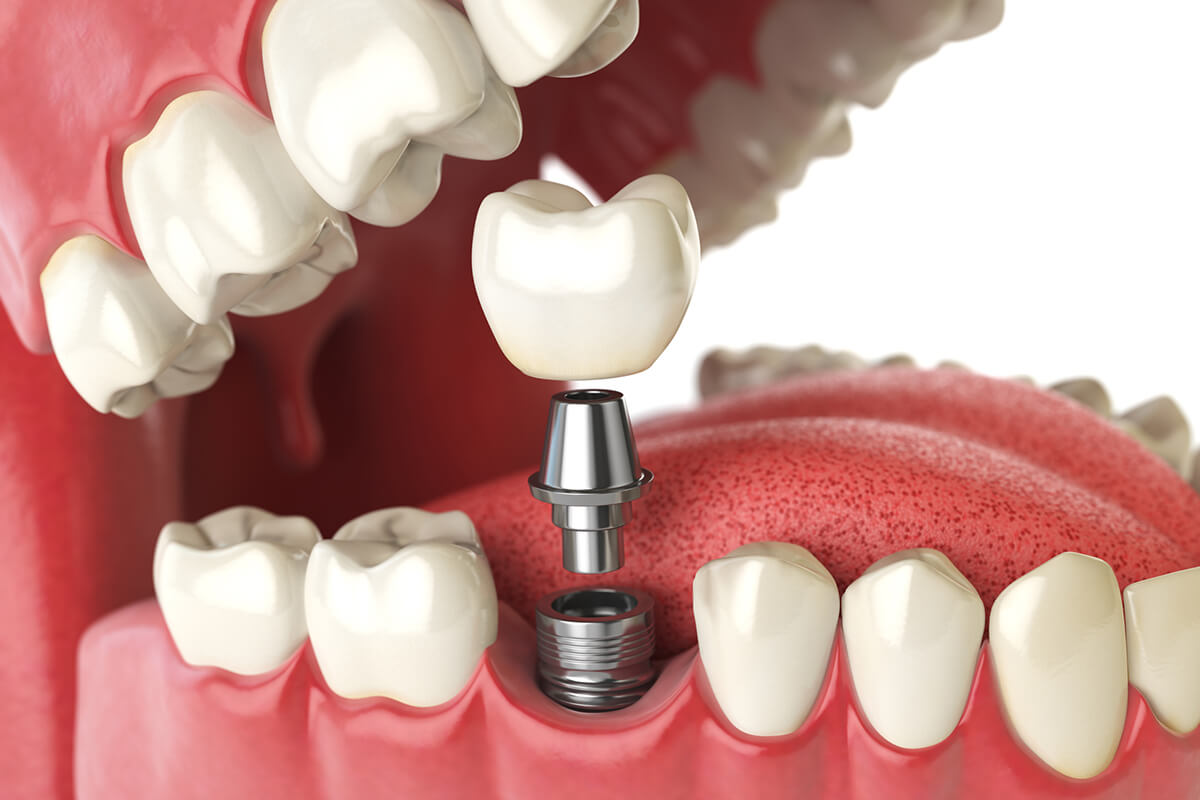When there’s a baby on the way, staying in the best health possible is of utmost importance for the expectant mom. According to the American Dental Association (ADA) and the American College of Obstetrics & Gynecology (ACOG), optimal health during pregnancy includes caring for the teeth and gums with regular brushing, flossing, and preventative care from a qualified dentist. But what if a patient wants to have a cosmetic procedure, like dental implants, done during their pregnancy?
Hold Off on the Implants Until the Pregnancy is Over
It may not be what the expectant mom wants to hear, especially if she has already started the dental implant process prior to finding out about the pregnancy, but we don’t recommend that any pregnant woman receive elective dental procedures until their pregnancy has ended.
There are a few reasons why waiting until the pregnancy is over before receiving dental implants is the best option for both mom and baby.
Higher Risk of Implant Failure During Pregnancy
Anyone who has ever been pregnant will probably have a story about how the pregnancy affected their teeth. From vomit-induced erosion to softening teeth to growths caused by fluctuating hormones, pregnancy is hard on the dental structures. These unpredictable changes can make it harder for dental implants to stay put, increasing the risk that the implants will fail and need to be redone. Since implants aren’t cheap and implant failure can be painful, waiting until this increased risk subsides is your best bet for your wallet and your mouth.
Difficult to Treat Pain & Complications During Pregnancy
Treating pain and other complications after dental implant surgery is very difficult in patients who are pregnant. Many traditional antibiotics and painkillers are off the table during pregnancy due to the risk to the fetus. If a complication arises after implant surgery, or the patient has an unusually painful recovery, their options for treatment are very limited while pregnant. This could lead to uncontrolled pain, anxiety, and stress-related illness, all of which are bad news for the expecting mom and the unborn baby.
Dental Procedures You Can Safely Receive During Pregnancy
So what dental care and procedures can pregnant patients safely receive? As mentioned above, the ADA and ACOG encourage all pregnant women to receive preventative dental care during pregnancy, as well as addressing any dental issues that may cause more harm if not dealt with promptly. This includes filling cavities, root canals, extracting infected teeth, and even scaling and root planing to treat periodontitis. However, the dentist should always weigh the medical necessity of the proposed dental treatment against the potential for harm when deciding which procedures to complete on a pregnant patient. Collaboration between the dentist and the patient’s obstetrician can help clarify which dental procedures are safe and necessary.
Frequently Asked Questions About Dental Implants
Does dental insurance pay for implants?
Yes, many dental insurance plans offer coverage for dental implants. Check your policy coverages for more information on what your specific plan offers. You can also speak with your insurance agent or employee benefits representative, who should be able to help you understand your coverages.
What happens if you have a tooth pulled and don't replace it?
When you have a tooth removed and don’t immediately replace it, several issues may arise. Having an empty space where the tooth was removed can make it difficult to eat certain foods. Some people report speech problems due to missing teeth and it is also common for the teeth neighboring the empty space to move out of their original alignment, causing gaps and potential further problems.
Are Dental Implants Right for You?
If you’d like to discuss dental implant treatments and if implants are right for you, contact the dental team at Kalmar Family Dentistry. Contact us today at 631-673-0670 to learn more.

